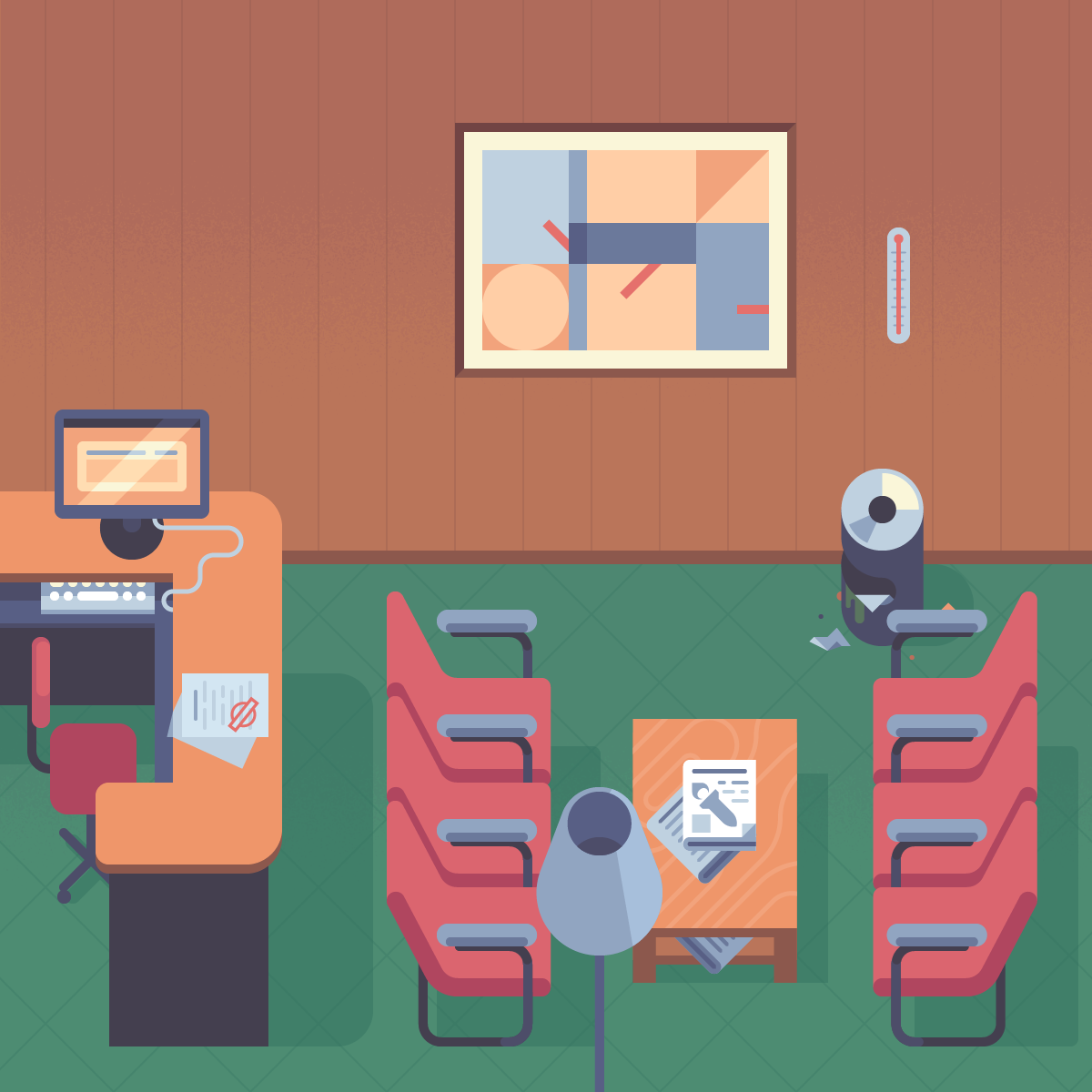Non Trauma Informed Space

Modern or abstract art has been found to be less calming than nature-themed paintings or photography.
Consider having an automated thermostat. People can become very uncomfortable in rooms that are too hot or too cold.
Computer screens displaying confidential information should not be within view of people in the waiting area. You can use a privacy screen or make sure the screen is facing away from view.
Maintain a tidy and organized work area. Disorganized work spaces can create concerns about professionalism in the setting. Doubt can lead to mistrust and affect interactions and relationships. We want our clients/families to have the utmost confidence in our abilities as care providers.
Seating arrangements can influence the emotional and physical wellbeing of people. Consider arranging furniture so that people do not have to sit directly across from each other, next to each other and when possible, have the option of single seats.
Avoid having documents that may not apply/be suitable for everyone (e.g., a newspaper on a children's sized table). Display materials that can easily be sanitized to avoid the spreading of germs.
Keeping our environments clean is not just common sense from a hygiene perspective; it also makes clients and staff feel more valued.
Absence of clearly marked exits can be anxiety provoking.
Natural light is ideal. If this is not possible, consider having lights that are soft and do not emit any sounds.
Walls can have signage that conveys useful information. However, punitive sounding messages can make people feel unwelcomed. Consider rewording messages informing people what they 'can' do (e.g., please use calm and polite language) rather than what they 'can't' do (e.g., no yelling or cell phone use).



